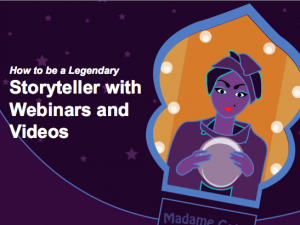
Have you ever received a call from Google wanting to talk with you to make sure your Google Business listing is up to date? These automated phone calls say, “Our records show you have not updated your free Google (business) listing.” Even if you are registered with the ‘Do Not Call’ list, they keep calling. This type of call is a scam to get you to pay $ 200 per month for something that is free.
Google will never call you, unless you are spending thousands of dollars with them each month? How do I know this? I know that because I have a client who spends almost $ 5000 per month on AdWords, and Google does call me to help improve and maximize their account.
What Are AdWords?
 Google AdWords are simply pay-per-click advertisements in the Google search engine. These are the ads that show up at the top and side of the page when you do a Google search. These ads can also show up as contextual ads, better known as ads that show up on Amazon or eBay and other search partner properties.
Google AdWords are simply pay-per-click advertisements in the Google search engine. These are the ads that show up at the top and side of the page when you do a Google search. These ads can also show up as contextual ads, better known as ads that show up on Amazon or eBay and other search partner properties.
You can choose the parameters for where the ads will show, including in other countries or limited to a 20 mile radius from your business, what tech they show up on like only desktops or including mobile and tablets, to what languages, what times of day you want them to show and so much more.
Next you need to set a daily budget. The budget depends on your business and cost of keywords. If you set a daily budget of $ 10 per day ($ 300 per month), you ads will show until your budget is used up for that day and will start again tomorrow. If your ads cost $ 1 each, you can get up to 10 clicks per day, but if you are in a more competitive industry (plumbers can pay up to $ 30 per click) and you have to bid over $ 10, then no ads will show unless you increase your daily budget.
Clicks vs Impressions

An impression means the ad shows on a page. A click means someone clicks on the ad and is directed to the designated webpage. You can have different ads for multiple products or services, and each should redirect to a landing page that best represents the content of the ad. So, you don’t pay for impression, you only pay when someone clicks on your ad. That daily budget for your campaign can get used up quickly if you have multiple businesses, products or services.
Keywords

Keywords are the search terms you would like to be found with. You have to be careful with these. There are broad matches (one word keywords) and exact matches (long tail or multiple keywords that are in quotes or have a+ to narrow the search). If you use a phrase like ‘heat pumps and attic fans’ and don’t use quotes or + modifiers, your ad will show up each time there is a search on one of those words (heat or pumps or attic or fans). That could eat up your budget really fast.
I had a customer who ran an indoor storage facility. He decided to have his new 20-year-old employee take over the AdWords account. About two months later, my customer called me and wanted to hire me back. I asked him what happened, and he said that he didn’t know but his business had dropped significantly.
When I dug into what his young employee hand done, I discovered that he had purchased the keyword “Storage”. What else is storage besides indoor storage for documents and personal property? How about hard drives, thumb drives, memory, Tupperware, intermodal containers, and a whole bunch of other things that he was competing for that had nothing to do with their business? I corrected all of that and his business quickly started to come back.
5 Quick Tips
- Integrate – Google offers you Analytics and Search Console (formally Webmaster Tools) free. These are awesome research tools. You need to integrate them with your AdWords campaigns. You also have the Keyword Tool (also inside of AdWords). All of these are free, because Google hopes you use them to pay for AdWords and they give Google more data to sell AdWords. You need to integrate AdWords via Analytics and Property Settings.
- Don’t Over Keyword – I had a client with over 750 keywords on a $ 300 monthly budget. He spent more time competing against himself, than he did against his competition. You are best served with 10 top keyword phrases, rather than 10,000 including misspellings, competitor names, and so on. Use Search Console to see what people are searching you for, and do your best to bring those phrases to the keywords you pay for.
- Skip The Bidding Wars – I had a client that bid $ 1 to be #1 on Google. His competition bid $ 2. He bid $ 3, Competition Bid $ 4. He Bid $ 5. Competition bid $ 6. I said “STOP IT!” You are only making Google rich trying to outbid your competition. Your goal should always be to be in the top 3 … #1 in AdWords is not the same as being #1 in organic. Live to fight another day while keeping your budget intact!
- Segregate Campaigns – Most businesses have multiple audiences. My favorite examples are HVAC companies. You have to have a campaign for heating and another for cooling. When it’s hot, you turn on the campaign for cooling and air conditioning and turn off the campaign for heating. Conversely, when it’s cold you turn on the campaign for heating and humidifiers and turn off the campaign for cooling. Make it simple, so you can pause and restart campaigns when necessary!
- Monitor Regularly – This is not a “Set It And Forget It” internet marketing play. You have to log into your Analytics, AdWords and Search Console at least once per week. Things change, trends change, and the internet changes daily! If you don’t have the time or bandwidth, then you better be prepared to pay someone to monitor it for you. The cost you pay someone can save you hundreds or thousands in wasted money. Look back at the company that paid the 20 something to pay for the word “Storage” and you will get the picture!
Final Thoughts

I have always said that, “There are two ways to get to #1 on Google … Content Marketing or Paying Google.” If you are like most small businesses with more time than money, then Content Marketing is the way to go. If you have the money and can find a way to convert $ 1 to $ 2, $ 3 or more, then Google AdWords is a great way to grow your business.
Time is money, and money is time, but you have to choose what makes the most sense for you and your business. AdWords has helped some companies I have worked with turn $ 5 into $ 50 and $ 5000 into $ 125,000, but you have to have control of the numbers.
I would love to hear your thoughts, comments and feedback!
Digital & Social Articles on Business 2 Community(392)





